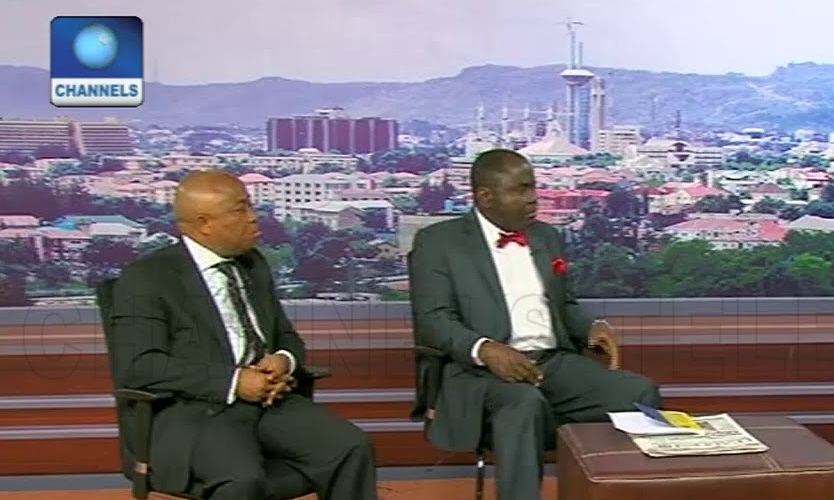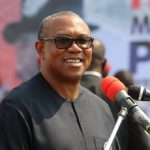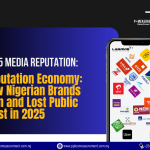Economy
Okutepa, Ananaba Differ on NFIU Ban on Cash Withdrawals from Govt Accounts

By Adedapo Adesanya, Dipo Olowookere
Two Senior Advocates of Nigeria (SANs), Mr Jibrin Okutepa and Mr Paul Ananaba, have expressed different opinions on the recent ban on cash withdrawals from government accounts by the Nigerian Financial Intelligence Unit (NFIU).
While speaking on the flagship breakfast show on Channels Television, Sunrise Daily, monitored by Business Post on Friday, Mr Okutepa said he supports the ban because it would help in tracking government spending.
However, in his opinion, Mr Ananaba argued that the NFIU does not have the power to restrict the state and local governments from having access to their funds, either through cashless or otherwise.
“The NFIU does not have the powers to enforce such except it works with other agencies; standing alone, NFIU ought not to have made that statement; it should have been a joint statement [with other agencies like the EFCC, CBN],” the legal luminary said.
On Thursday, while addressing reporters, the chief executive of NFIU, Mr Moddibo Tukur, explained that from March 1, 2023, the new policy would become effective, noting that it was to curb the rate at which monies were withdrawn from public accounts in total disregard to the money laundering laws, and also to reduce corruption in public service.
He warned that any government official that withdraws cash from public accounts would risk investigation by the Economic and Financial Crimes Commission (EFCC), the Independent Corrupt Practices Commission (ICPC), and the Nigeria Police Force, in collaboration with the NFIU.
“The NFIU had told banks and government agencies at all levels to go fully digital by moving online, as all transactions involving public money must be routed through the banks for the purpose of accountability and transparency.
“This is not reversible as we are only enforcing the law. As far as we are concerned, Nigeria will become a full non-cash economy by March 1, 2023, this year.
“As a consequence, any government official that withdraws even one naira cash from any public account from March 1 will be investigated and prosecuted in collaboration with relevant agencies like the Economic and Financial Crimes Commission (EFCC), Independent Corrupt Practices Commission (ICPC) and Nigeria Police Force (NPF),” he declared.
Mr Okutepa, while commenting, said the organisation has the power to carry out this function.
“I support the position and enforcement of the provisions of the Act that set them up in order to prevent money laundering.
“I agree that no government officials should be allowed, including Governors, Ministers, presidential aides, the President himself should not be allowed to withdraw huge amounts of money,” the legal practitioner submitted.
Mr Okutepa noted that if this policy is religiously enforced, it will curb corruption, especially funds withdrawn by state governors through security votes.
“For instance, you talk about this particular thing called security votes; there is a lot of money being withdrawn under the guise of security votes, and yet, we are in a state where [we have serious security threats], and people are afraid to go to their villages,” he said.
“My fear about this law is not the intention but the ability to follow through.
“From the point of law, looking at the provisions of the law that set up the NFIU, particularly Section 1 that talked about its aims and objectives, Section 2 that created the act and Section 3 that set out the functions, [it has the power to carry out this policy].
But Mr Ananaba said, putting sentiment aside, the NFIU cannot enforce the policy alone because it has limited powers to do so.
“You want to go cashless, but does NFIU have the capacity or guarantee that the country has the technology for a totally cashless society from March 1?” he queried.
“I would have expected that the CBN and other financial institutions would be part of a coalition that will bring this to pass,” he submitted.
Speaking further, he asked, “On what basis will the NFIU give directives to states? What happens when things go wrong [and the states challenge or go against the policy]?”
“My point is that NFIU cannot go outside the laws setting it up in 20218; it does not give it the powers to regulate cash withdraw,” he emphasised
Economy
Presco, GTCO List Additional Shares on Stock Exchange

By Aduragbemi Omiyale
The duo of Presco Plc and Guaranty Trust Holding Company (GTCO) Plc has listed additional shares on the Nigerian Exchange (NGX) Limited.
The extra equities of these two publicly-listed organisations were admitted to the local stock exchange last Friday, increasing their respective total issued and fully paid-up shares.
For Presco, it listed fresh 166,666,667 ordinary shares of 50 Kobo each on the daily official list of the NGX on Friday, January 30, 2026, increasing its total issued and fully paid-up stocks from 1,000,000,000 units to 1,166,666,667 units.
The additional equities were from the rights issue of the firm allotted to shareholders on the basis of one new share for every existing six ordinary shares held as at close of business on Monday, October 13, 2025.
In a circular issued over the weekend, the NGX said, “Trading licence holders are hereby notified that additional 166,666,667 ordinary shares of 50 Kobo each of Presco Plc were on Friday, January 30, 2026, listed on the daily official list of Nigerian Exchange (NGX) Limited (NGX).
“The additional shares arose from the company’s rights issue of 166,666,667 ordinary shares of 50 Kobo each at N1,420.00 per share on the basis of one new share for every existing six ordinary shares held as at close of business on Monday, October 13, 2025.
“With the listing of the additional 166,666,667 ordinary shares, the total issued and fully paid-up shares of Presco Plc has now increased from 1,000,000,000 to 1,166,666,667 ordinary shares of 50 Kobo each.”
As for GTCO, it listed additional125,000,000 ordinary shares of 50 Kobo each at N80.00 per unit offered through private placement.
The fresh equities taken to Customs Street have raised the total issued and fully paid-up shares of GTCO from 36,425,229,514 to 36,550,229,514 ordinary shares of 50 Kobo each.
Economy
FG, States, Local Councils Share N1.969trn FAAC Allocation

By Adedapo Adesanya
A total of N1.969 trillion was shared to the federal government, the 36 state governments and the 774 local government councils from the gross revenue of N2.585 trillion generated by the nation in December 2025.
The money was disbursed to the three tiers of government at the January 2026 Federation Account Allocation Committee (FAAC) meeting held in Abuja.
In a statement issued on Monday by the Director of Press and Public Relations in the Office of the Accountant-General of the Federation (OAGF), Mr Bawa Mokwa, it was stated that the FAAC allocation comprised statutory revenue of N1.084 trillion, distributable Value Added Tax (VAT) revenue of N846.507 billion, and Electronic Money Transfer Levy (EMTL) revenue of N38.110 billion.
“Total deduction for cost of collection was N104.697 billion, while total transfers, refunds, and savings were N511.585 billion,” the statement partly read.
It was also revealed that from the N1.969 trillion total distributable revenue, the federal Government received the sum of N653.500 billion, and the state governments received N706.469 billion, the local government councils received N513.272 billion, and the sum of N96.083 billion was shared with the benefiting state as 13 per cent derivation revenue.
He said of the N1.084 trillion distributable statutory revenue, the central government received N520.807 billion, the state governments got N264.160 billion, the local councils were given N203.656 billion, and N96.083 billion was shared to the benefiting states as 13 per cent derivation revenue.
FAAC noted that from the N846.507 billion distributable VAT earnings, the federal government got N126.976 billion, the state governments received N423.254 billion, and the local government councils got N296.277 billion.
From the revenue from EMTL, Mr Mokwa explained that the national government was given N5.717 billion, the state governments got N19.055 billion, and the councils collected N13.338 billion.
He added that the companies’ Income Tax (CIT)/CGT and STD, Import Duty and Value Added Tax (VAT) increased significantly in December, while oil and gas royalty, CET levies and fees increase marginally, with excise duty, Petroleum Profit Tax (PPT)/Hydrocarbon Tax (HT), and EMTL considerably down.
Economy
Oil Exports to Drop as Shell Commences Maintenance on Bonga FPSO

By Adedapo Adesanya
Nigeria’s oil exports will drop in February following the shutdown of the Bonga Floating Production Storage and Offloading (FPSO) vessel scheduled for turnaround maintenance.
Shell Nigeria Exploration and Production Company (SNEPCo) Limited confirmed the development in a statement issued, adding that gas output will also decline during the maintenance period.
This comes as SNEPCo begun turnaround maintenance on the Bonga FPSO, the statement signed by its Communications Manager, Mrs Gladys Afam-Anadu, said, describing the exercise as a statutory integrity assurance programme designed to extend the facility’s operational lifespan.
SNEPCo Managing Director, Mr Ronald Adams, said the maintenance would ensure safe, efficient operations for another 15 years.
“The scheduled maintenance is designed to reduce unplanned deferments and strengthen the asset’s overall resilience.
“We expect to resume operations in March following completion of the turnaround,” he said.
Mr Adams said the scope included inspections, certification, regulatory checks, integrity upgrades, engineering modifications and subsea assurance activities.
“The FPSO, about 120 kilometres offshore in over 1,000 metres of water, can produce 225,000 barrels of oil daily.
“It also produces 150 million standard cubic feet of gas per day,” he said.
He said maintaining the facility was critical to Nigeria’s production stability, energy security and revenue objectives.
Mr Adams noted that the 2024 Final Investment Decision on Bonga North increased the importance of the FPSO’s reliability. He said the turnaround would prepare the facility for additional volumes from the Bonga North subsea tie-back project.
According to him, the last turnaround maintenance was conducted in October 2022.
“On February 1, 2023, the asset produced its one billionth barrel since operations began in 2005,” Mr Adams said.
SNEPCo operates the Bonga field in partnership with Esso Exploration and Production Nigeria (Deepwater) Limited and Nigerian Agip Exploration Limited, under a Production Sharing Contract with the Nigerian National Petroleum Company (NNPC) Limited.
The last turnaround maintenance activity on the FPSO took place in October 2022. On February 1, the following year, the asset delivered its 1 billionth barrel of oil since production commenced in 2005.
-

 Feature/OPED6 years ago
Feature/OPED6 years agoDavos was Different this year
-
Travel/Tourism9 years ago
Lagos Seals Western Lodge Hotel In Ikorodu
-

 Showbiz3 years ago
Showbiz3 years agoEstranged Lover Releases Videos of Empress Njamah Bathing
-

 Banking8 years ago
Banking8 years agoSort Codes of GTBank Branches in Nigeria
-

 Economy3 years ago
Economy3 years agoSubsidy Removal: CNG at N130 Per Litre Cheaper Than Petrol—IPMAN
-

 Banking3 years ago
Banking3 years agoSort Codes of UBA Branches in Nigeria
-

 Banking3 years ago
Banking3 years agoFirst Bank Announces Planned Downtime
-

 Sports3 years ago
Sports3 years agoHighest Paid Nigerian Footballer – How Much Do Nigerian Footballers Earn











